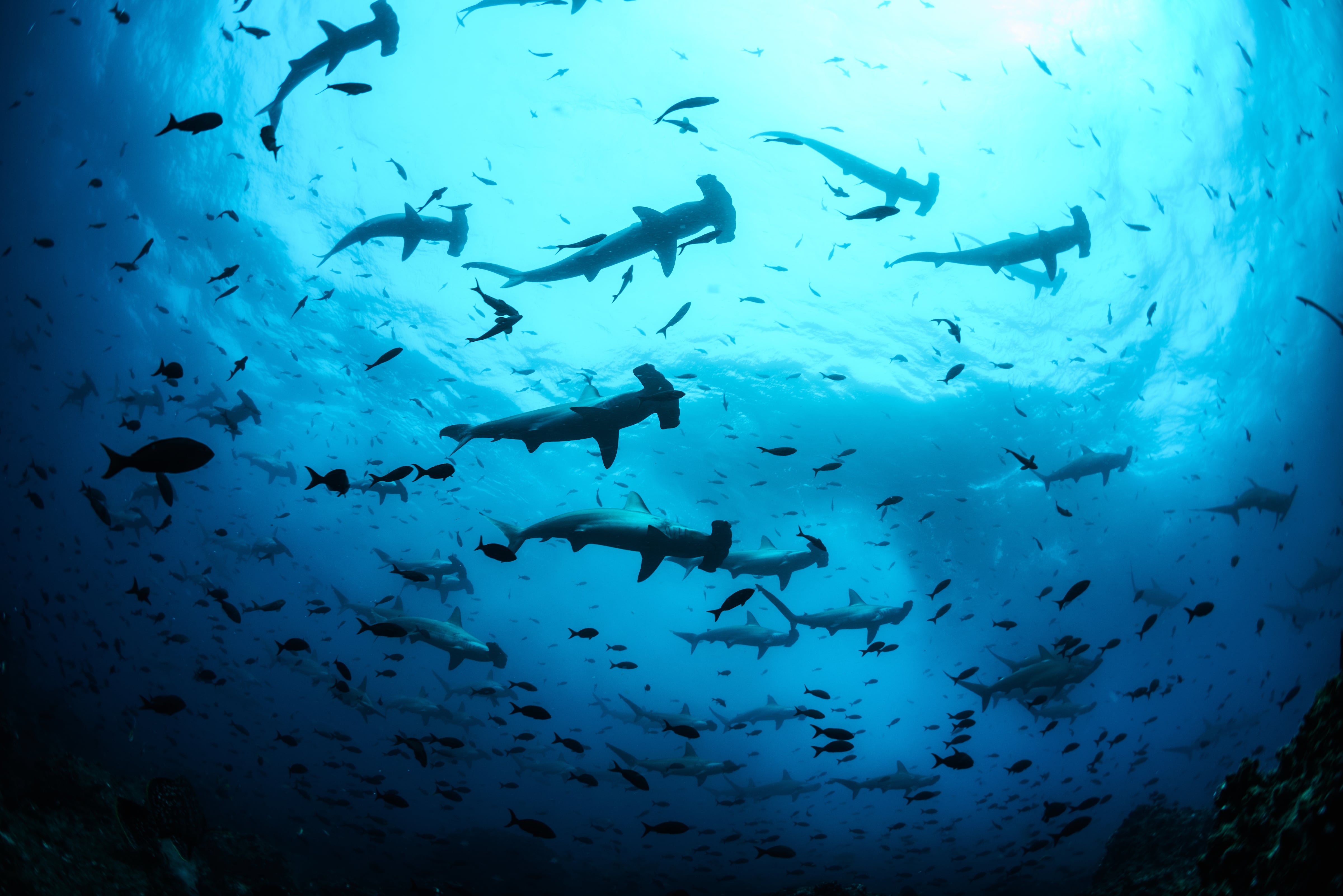Shark Awareness Week
Around 50 years after its release, the opening two notes to the Jaws theme are still capable of striking fear into anyone who hears them, and no-one could have predicted the impact the movie would have on sharks for decades to come.
Based on stats from the International Union for Conservation of Nature, more than one third of all shark species are now threatened with extinction. A statistic which many believe has been exacerbated by Steven Spielberg’s 1975 horror.
Sadly, sharks face countless threats throughout their lifetime, and the mainstream perception of sharks could be contributing to ignorance towards the dire situations they now face. Below are some of the key reasons behind the endangerment of sharks & why you should join in advocating for their survival:
Plastic Pollution
- Besides the physical damage plastics can cause to sharks through ingestion and plastics like nets entangling with them while they swim, plastic pollution also has quite an adverse effect on climate change. This can have a devastating effect on shark habitats, including mangroves, which provide vulnerable species (such as the Blacktip Shark) with safe nursery grounds.
Overfishing and bycatching
- Trade in shark fins and bycatch (the unintentional capture of sharks when fishing) can decimate sharks in huge numbers at a very quick rate. Sharks are slow reproducers and as a result, populations are struggling to recover quick enough to keep up with the large numbers of sharks dying to overfishing and bycatching.
So, why is it so important to protect sharks?
The extinction of these animals could have a disastrous knock-on effect due to the critical role that sharks play in protecting marine eco-systems.
As apex predators, sharks feed on abundant species. This helps to maintain high levels of biodiversity in the ocean and if left unchecked, the natural prey for sharks can outcompete less abundant species – leading to the extinction of many other different types of life at sea.
They also play a huge role in climate control. Large-bodied predators such as sharks help to sequester blue carbon – this is carbon that is captured from the atmosphere and stored in the ocean.
During their life, sharks also help to protect natural carbon sinks in the ocean by preying on animals likely to do damage to these areas.
When a shark dies naturally, it often falls to the ocean floor where its carbon is sequestered by the seabed and prevented from being released back into the atmosphere, where it can contribute to climate control.
Our partners at Galapagos Conservation Trust are working tirelessly to help protect endangered sharks in the oceans around the Galapagos. The marine charity’s role in the protection of key migratory routes around the Galapagos Marine Reserve helps GCT to not only safeguard sharks from fishing but begin to understand their migration patterns better. Research which is helping to contribute to the world’s first protected ‘swimway’ between Galapagos and Cocos Island National Park in Costa Rica; an effort which is helping GCT and other conservation groups like them to work towards the shared global goal of protecting 30% of our oceans by 2030.
While movies like Jaws may make you nervous at the thought of a shark, many species are gentle giants, posing no threat to humans. Failure to protect these beautiful creatures will only hurt our chances of survival on Earth. To protect sharks, we need to take a holistic view of how we’re addressing the daily threats to sharks mentioned in this blog. With sharks left to contend with pollution, fishing, and climate change at all stages of their lifecycle, we too must ensure our conservation efforts are constant – our future depends on it.
In 66 words:
Fear at the thought of sharks is a feeling that harks back nearly 50 years to Steven Spielberg’s 1975 flick, Jaws.
However, these magnificent creatures are mostly gentle giants who play a huge role in maintaining the health of our planet.
Our partners, Galapagos Conservation Trust, work tirelessly to help protect endangered sharks in the oceans around Galapagos. Find out more about their amazing work here.
